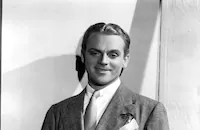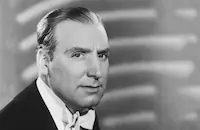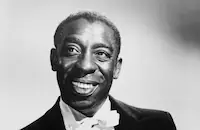Winner Take All

Brief Synopsis
Cast & Crew
Roy Del Ruth
James Cagney
Marian Nixon
Guy Kibbee
Dickie Moore
Virginia Bruce
Film Details
Technical Specs

Synopsis
Pop Slavin, manager of boxer Jim Kane, sends his charge to rest at a Western health ranch. There Jim meets widow Peggy Smith and her ailing son Dickie. Jim grows fond of the two, and when Peggy tells him that her husband's life insurance money will not cover more time at the ranch, Jim arranges to fight in a winner-take-all bout. Jim wins and gives Peggy his earnings, and when Pop hears about the fight, he arranges a professional fight for Jim in Chicago. Jim reluctantly leaves Peggy and Dickie behind, promising to send for them later. Jim fights well and becomes a popular favorite. One evening, Jim is introduced to socialite Joan Gibson. He is very attracted to her, but she keeps him at a distance. Jim starts to spend all his time with Joan's crowd, even though he has nothing in common with them. They are amused by him in a condescending way. When Joan mentions that she is repulsed by his broken nose and cauliflower ear, Jim has plastic surgery, then is told by Joan that he is no longer colorful and different. Because he is so careful not to injure his reconstructed face, Jim's fights start to bore his audience. Pop sends for Peggy, but Jim tells her that he intends to marry Joan after his fight with the champion. During the fight, he learns that Joan is sailing that night. He finishes the fight in record time and without changing, jumps in a cab to try to catch the boat before it sails. He finds Joan, but when he learns she is leaving with Roger Elliot, a man of her own class, he returns to Peggy and asks her to marry him.

Director

Roy Del Ruth
Cast

James Cagney

Marian Nixon

Guy Kibbee

Dickie Moore

Virginia Bruce

Alan Mowbray
Esther Howard

Clarence Muse
Clarence Wilson

Ralf Harolde
John Roche
Allan Lane
Charles Coleman
Renee Whitney
Harvey Perry
Julian Rivero
Crew

Videos
Movie Clip



Trailer
Film Details
Technical Specs

Articles
Winner Take All
Cagney trained for the role with a real-life boxer, former welterweight champion Harvey Parry, who has a role in the film. Cagney recalled in his autobiography that another professional fighter, watching him spar, was certain that Cagney had fought professionally - his footwork proved it. "I said, 'Tommy, I'm a dancer. Moving around is no problem.'" Winner Take All was written by Wilson Mizner, a true Hollywood character, screenwriter, raconteur, con man and bon vivant. Mizner knew something about the fight game - his colorful past included managing several boxers in New York, as well as bilking miners during the Alaska Gold Rush, swindling rich speculators during the Florida land boom, and writing successful Broadway plays. Cagney wrote that he was fascinated by Mizner and sat for hours listening to his stories.
Winner Take All has some unusual plot twists - not many boxing pictures feature the fighter getting a nose job to fit in with his society sweetheart - that raise it above the run-of-the-mill. And critics were impressed with Cagney's portrayal. "Mr. Cagney gives such a fascinating picture of the boxer's conceit and stupidity that the original plot, which might have come from a novelette, is lost in the intricacies of his character," according to the Times of London. "He carries with him a veritable smell of the shower room, of sweating body and sodden leather. He walks like a punch-drunk fighter," wrote Gerald Breitgan in the New York World-Telegram. Cagney would play boxers twice more, in The Irish in Us (1935) and City for Conquest (1940).
Winner Take All was another hit for Warner Bros., and Cagney, who just a year earlier had gone on strike until the studio raised his salary from $400 to $1600 a week, staged another strike for the second but not the last time. He didn't work for six months, and threatened to quit movies and go back to New York to study medicine at Columbia University. He got a raise, but not as much as he'd asked for, and over the next decade, Cagney would be both one of the studio's biggest moneymakers, and one of the biggest thorns in Jack Warner's side.
Director: Roy Del Ruth
Screenplay: Wilson Mizner, Robert Lord, based on a story by Gerald Beaumont
Cinematography: Robert Kurrle
Editor: Thomas Pratt
Costume Design: Orry-Kelly
Art Direction: Robert Haas
Music: W. Franke Harling
Cast: James Cagney (Jim Kane), Marian Nixon (Peggy Harmon), Virginia Bruce (Joan Gibson), Guy Kibbee (Pop Slavin), Clarence Muse (Rosebud), Dickie Moore (Dickie Harmon), Allan Lane (Monty), John Roche (Roger Elliott).
BW-67m. Closed captioning.
by Margarita Landazuri

Winner Take All
Quotes
You could stand a cold drink after that one, couldn't you?- Joan Gibson
He can't leave 'em alone, he's just a Woman's Home Companion.- Pop Slavin














